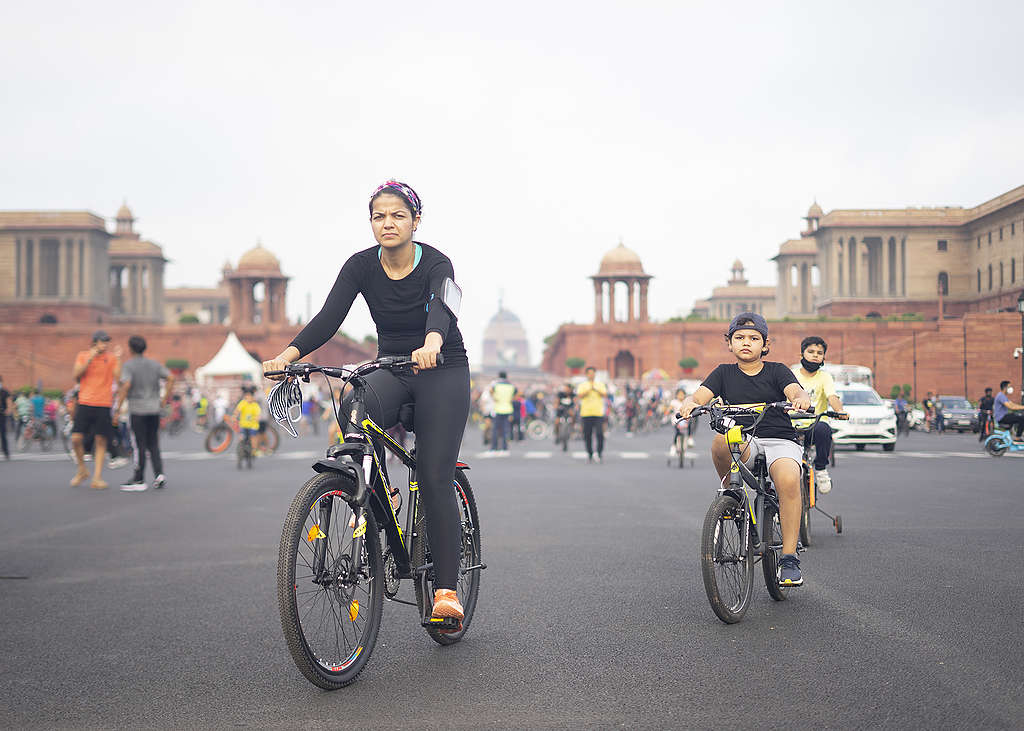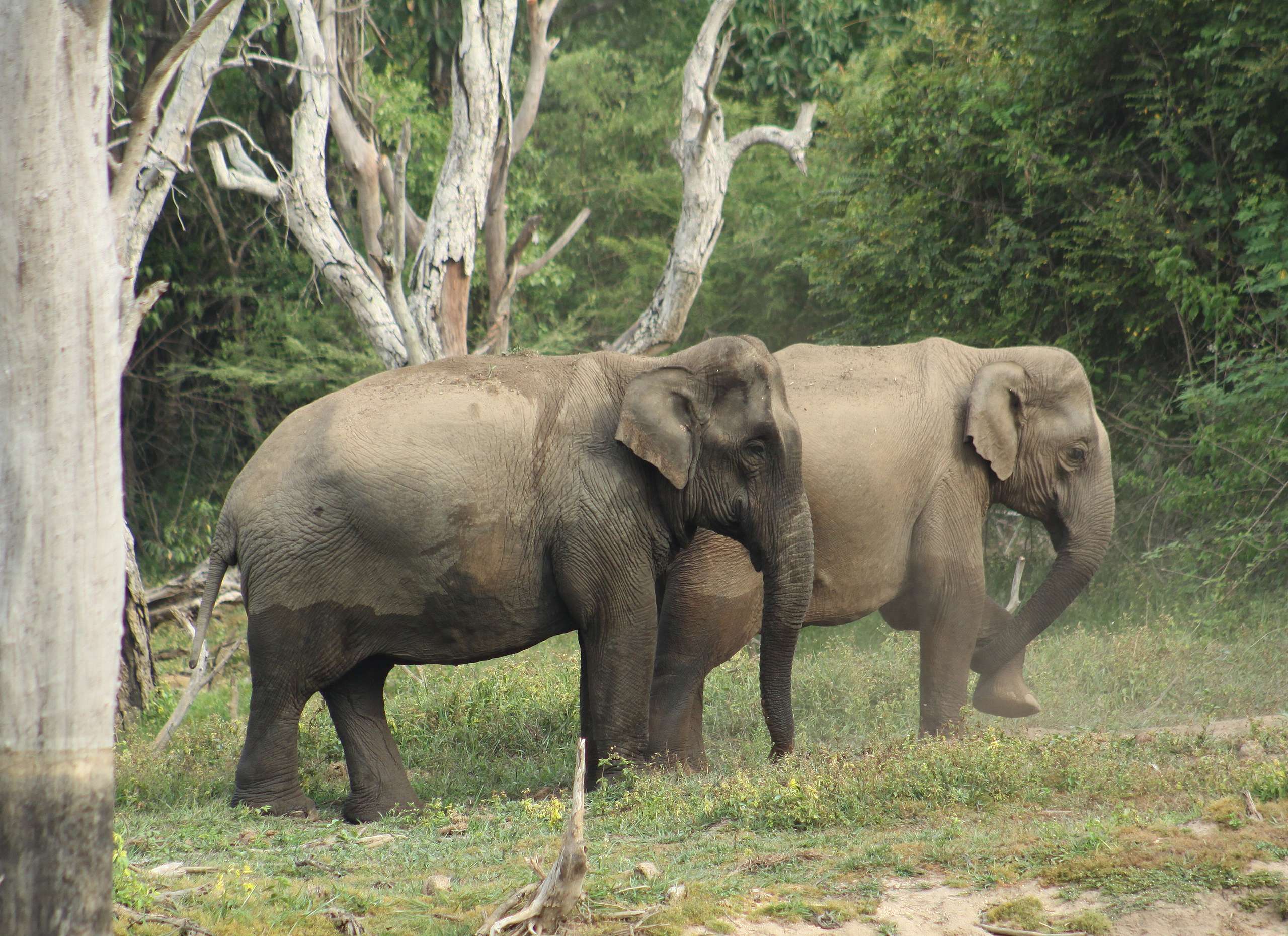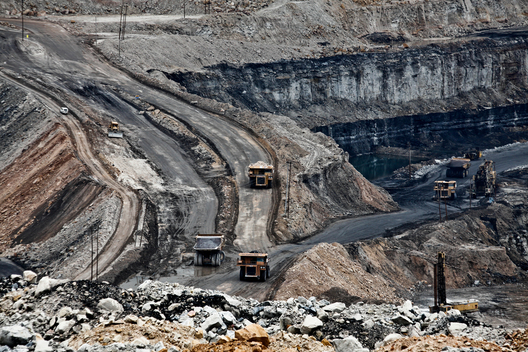“Is your brand linked to rainforest destruction?” That was the uncomfortable question posed to delegates at GLOBOIL 2011, the international conference on vegetable oil and oilseeds at Hotel Renaissance, Mumbai on September 24. The fact that it was larger-than-life orangutans asking the question left participants even more bemused.
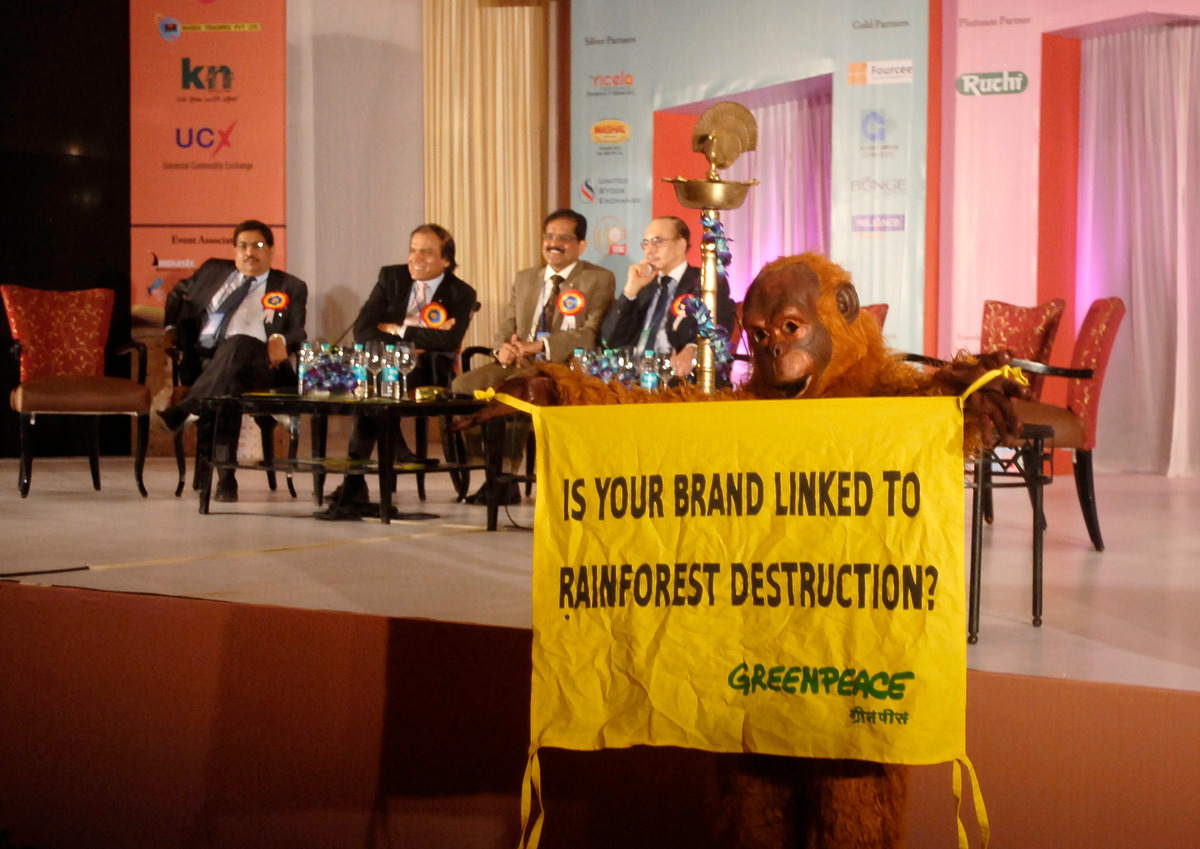
Greenpeace activists dressed as Orangutans protest during the Globoil India 2011. Greenpeace is protesting against the displacement of Orangutans due to the forest clearance made for palm oil production in Indonesia.
The orangutans held banners, asking the companies present – some of India’s biggest – to take action and stop using palm oil linked to widespread rainforest and peatland destruction by palm oil plantations in Indonesia.
Indonesia’s National Climate Change Council has identified the palm oil sector as one of the key drivers of natural forest loss and peatland degradation. It not only destroys the rainforests but also the last remaining habitats of endangered orangutans and Sumatran tigers. Indonesia contributes 5% to global GHG emissions, and 85% of this is believed to come from forest and peatland destruction.
India is the biggest palm oil consumer in the world. Most of India’s palm oil is imported from Indonesia. Palm oil consumption in India has doubled between the years 2006-07 and 2009-10. Yet, leading corporations like Ruchi Soya, Adani-Wilmar, Godrej, ITC, Yum Foods, Parle and Britannia – all users of palm oil in their products – do not have adequate safe guards to ensure that the palm oil they buy is deforestation free.
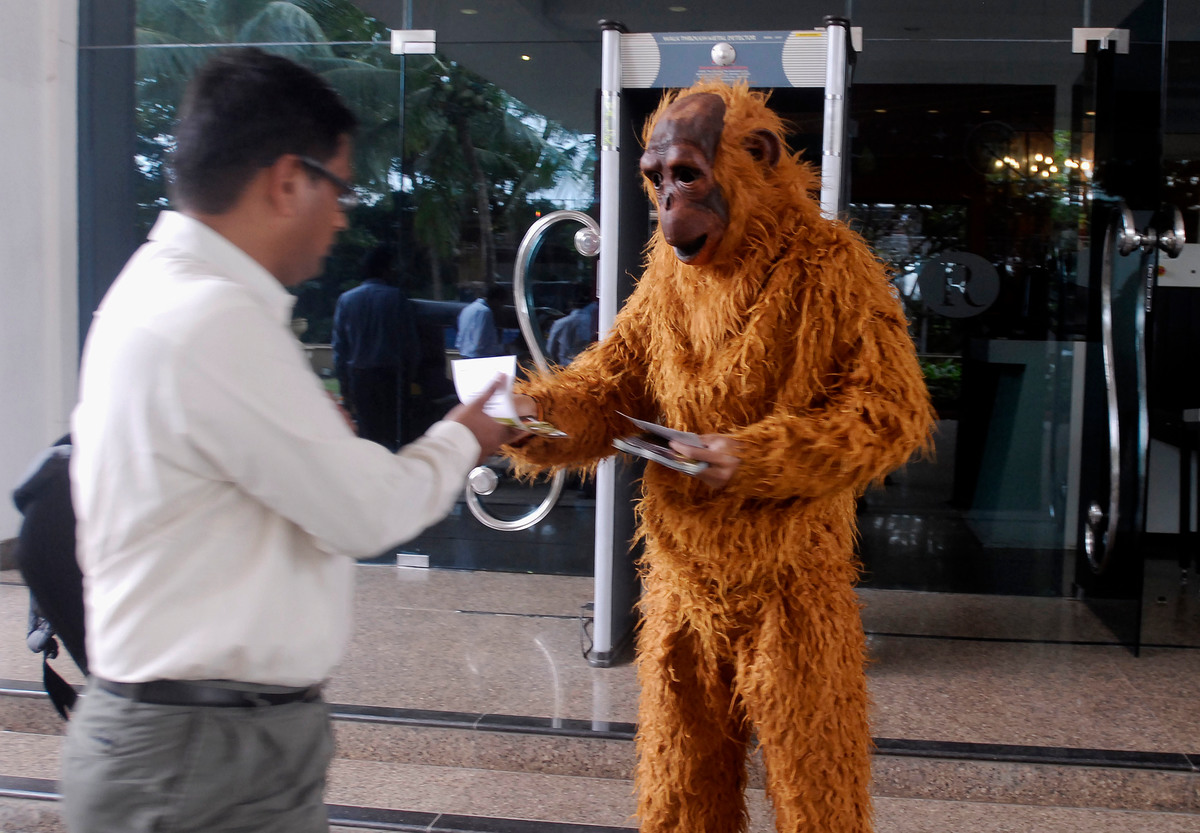
Greenpeace activists dressed as Orangutans hands out leaflets on palm oil during the Globoil India 2011. Greenpeace is protesting against the displacement of Orangutans due to the forest clearance made for palm oil production in Indonesia.
Active campaigns by Greenpeace in the past pushed global corporations including Nestle and Unilever towards progressive policies on sourcing palm oil and pulp and paper and cutting ties with suppliers involved in destruction.
Yet despite being some of the biggest palm oil importers and users in the world, no Indian company has made any substantial commitment towards eliminating commodities linked to deforestation from their supply chain. Greenpeace has been in correspondence with a large number of players, including Ruchi Soya, ITC, Adani-Wilmar, Britannia, Parle urging them to institute a zero deforestation policy. So far we have been met either with silence or (polite) evasion. Meanwhile, thousands of hectares of forest continue to be destroyed, and tigers and orangutans pushed closer to extinction. Hence, the orangutans took matters into their own hands to ensure the safety of their last remaining habitat….the rainforests!
In the months to come, the orangutans will be stepping up the pressure on their targets – so watch this space for more!
Story by: Nandikesh Sivalingam
Images: © Greenpeace/Apoorva Salkade
